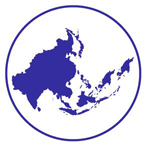Presentation Title
Has China Moved from Global Standard Setter to Market Winner? The Rise and Fall of Chinese Standard TD-SCDMA
Location
Council Chambers
Start Date
12-10-2013 3:45 PM
End Date
12-10-2013 5:15 PM
Abstract
In 2006, China government formulated high-targeted “Indigenous Innovation” industrial policy that aimed to encourage Chinese domestic firms engaging more on R&D, and hence hoped to transform “China factory” into “China innovation” country. One of key technologies received top-down supports is the mobile third-generation (3G) standard, TD-SCDMA, and by which China government intended to foster home-grown mobile-phone industry. Through the lens of political economy, this article examines the process and outcome of TD-SCDMA industrialization. The analysis dimensions, from macro-level to micro-level, are: (1) the priority of strategic goals; (2) the maneuver on the state-owned enterprise (SOE) under the Chinese fragmented bureaucratic system; and (3) the impact of China’s domestic politics on both domestic and foreign enterprises participating in TD-SCDMA industrialization.
The author conducts several field studies at both Beijing and Taipei sites during 2011-2013. The interviewees include Chinese government officials, personnel of state-owned enterprises, industrial experts, academic professors, and journalists. The research findings suggest that the logic of implementation industrial policy is more political than economic one. Subsequently, the state-business relationship is more conflicting than cooperative, given the SOE concerns seeking rents more than pursing techno-nationalism ideology. Altogether, the so-called “Indigenous Innovation” has being implemented in an upside down way, and determined the limited development of national industrialization. This author concludes the characteristics of Chinese way catching-up and discusses the prospectus of China moving from global standard setter to implementing “going-global” in the future.
Has China Moved from Global Standard Setter to Market Winner? The Rise and Fall of Chinese Standard TD-SCDMA
Council Chambers
In 2006, China government formulated high-targeted “Indigenous Innovation” industrial policy that aimed to encourage Chinese domestic firms engaging more on R&D, and hence hoped to transform “China factory” into “China innovation” country. One of key technologies received top-down supports is the mobile third-generation (3G) standard, TD-SCDMA, and by which China government intended to foster home-grown mobile-phone industry. Through the lens of political economy, this article examines the process and outcome of TD-SCDMA industrialization. The analysis dimensions, from macro-level to micro-level, are: (1) the priority of strategic goals; (2) the maneuver on the state-owned enterprise (SOE) under the Chinese fragmented bureaucratic system; and (3) the impact of China’s domestic politics on both domestic and foreign enterprises participating in TD-SCDMA industrialization.
The author conducts several field studies at both Beijing and Taipei sites during 2011-2013. The interviewees include Chinese government officials, personnel of state-owned enterprises, industrial experts, academic professors, and journalists. The research findings suggest that the logic of implementation industrial policy is more political than economic one. Subsequently, the state-business relationship is more conflicting than cooperative, given the SOE concerns seeking rents more than pursing techno-nationalism ideology. Altogether, the so-called “Indigenous Innovation” has being implemented in an upside down way, and determined the limited development of national industrialization. This author concludes the characteristics of Chinese way catching-up and discusses the prospectus of China moving from global standard setter to implementing “going-global” in the future.

Comments
Presentation is included in Panel 23: Local Politics and Economic Change in Contemporary China